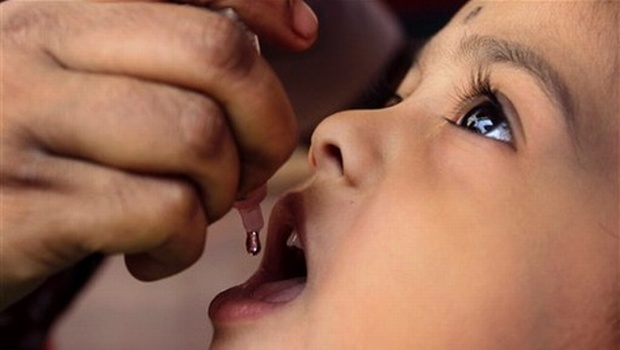Islamabad: Over the past few years, the federal capital has become more vulnerable to the polio virus, mainly due to a lack of human resources, proper planning and coordination between different health departments.
Incidentally, Islamabad is the only city in Pakistan where private individuals and students, rather than government employees, work as vaccinators, making it almost impossible to hold them accountable for any oversight.
This was revealed during an in-camera meeting of the District Polio Eradication Committee last week, held ahead of the upcoming polio eradication campaign – starting from 15th February.
The meeting was told that the overall performance of Islamabad, in terms of polio campaigns, was the worst in the whole country, which include restive Fata and Balochistan.
In January 2016, the meeting was told, at least 3,188 children were missed, while the parents of 244 children refused to vaccinate their children in Islamabad.
The presentation given to participants of the meeting, which is available with Dawn, shows that in January 2016, 91.93 per cent children were vaccinated in Islamabad, compared to the national average of 95.69 per cent.
Lack of teams, inter-departmental miscoordination blamed for capital’s dismal performance against national average
In December 2015, only 89.94 per cent of children were vaccinated in the federal capital, as compared to a national average coverage rate of 95.56 per cent.
The preceding month, November, saw only 83.84 per cent children vaccinated in teh capital, as compared to the national average of 93 per cent.
Moreover, two of the 11 environmental samples collected from Islamabad in 2015 tested positive for the poliovirus. In 2014, not a single sample from the capital had tested positive.
Environmental samples are collected from the sewerage water and if polio virus is found in the water, the sample is declared positive. It shows that a resident of area (adult or child) have polio virus.
A source privy to the meeting told Dawn on condition of anonymity that both the Capital Development Authority and the Islamabad Capital Territory administration had been warned that polio cases could be reported from Islamabad, either due to sub-par performance or because people from Fata, Khyber Pakhtunkhwa and Afghanistan regularly came to Islamabad, mostly to avail health facilities.
This is in stark contrast to five years ago, when Islamabad had the best record in the country with regards to polio eradication and health departments of all provinces were told to learn from the performance of Islamabad, since the last polio case detected here was reported on September 27, 2008.
Participants of the meeting were also informed that the results of the Lot Quality Assurance Sampling (LQAS) – a WHO-recommended third-party survey to determine the number of children immunised against the disease – from Islamabad had also worsened. As many as 300 houses are checked and if it is confirmed that 95 per cent of children are vaccinated, the LQAS is considered successful.
Islamabad failed all its LQAS in January 2016, while the national average stood at 76 per cent. The decline was obvious from November last year, when only 50 per cent of LQAS were successful, while in December, that number dropped to 33 per cent.
The meeting was told that in September 2015, performance was poor in sectors F-11, G-10 and Mehrabadi (F-12), where refusals were quite high. The localities of Mehrabadi, Koral and Tarlai were also singled out for poor performance in October, because polio teams did not visit the area. In December 2015 and January 2016, similarly poor performance was reported from the Chirrah area, near Lehtrar Road.
CDA Health Services Director Dr Hassan Urooj, who participated in the meeting, told Dawn that both the environmental samples from Islamabad that tested positive last year were found to come from Peshawar and the Khyber Agency.
But he admitted that their human resource problem was quite serious. “We have been running polio campaigns with volunteers; they get around Rs 2,500 for each campaign and leave. They cannot be held accountable because they are not government servants. They can even refuse to vaccinate,” he said.
“We have requested the Emergency Operations Centre (EOC) to allow Continuous Community Protected Vaccination (CCPV), under which vaccinators are hired from the local community to ensure that every child is vaccinated. We have had refusals from areas such as Jhangi Sayedan and have demanded 313 female community health workers to improve the quality of campaigns,” he said.
He said that out of 250 private schools, only three or four schools refuse to administer vaccines to their children.
“We have decided to take punitive action against those schools because there is a provision that action can be taken if someone spreads infection. Schools that refuse to vaccinate children become the reason for the spread of the virus. They will be send court summons,” he said.
Dr Rana Safdar, head of the national EOC said that they were aware of the situation in Islamabad and that all concerned departments had been ordered to improve the standard of the polio campaigns, beginning from February 15.






